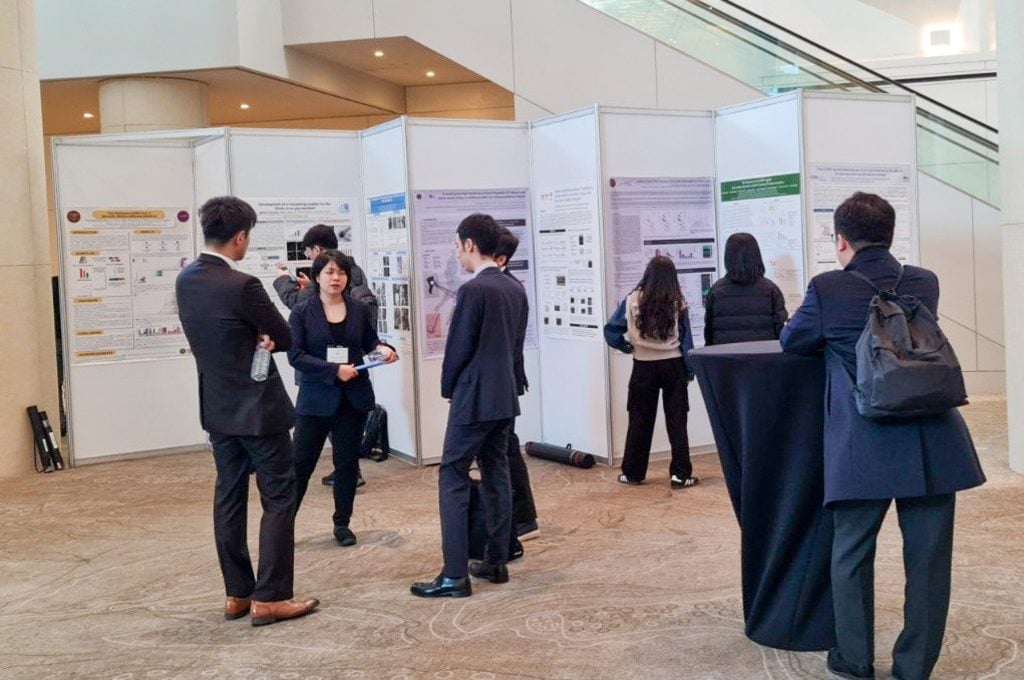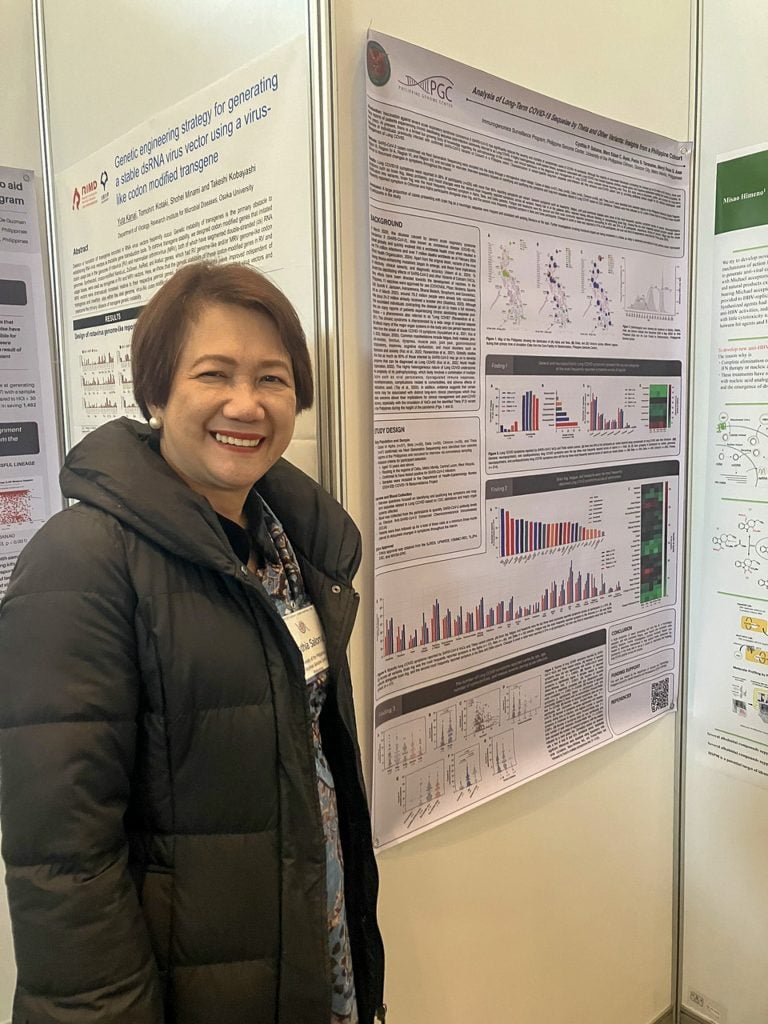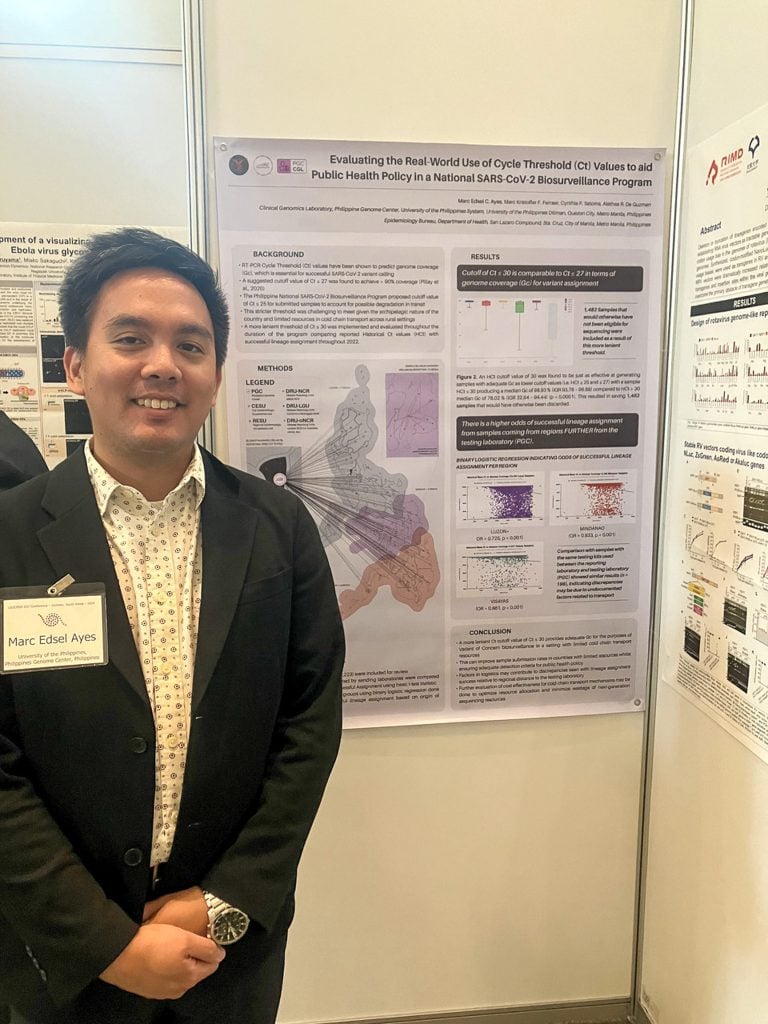PGC researchers were invited to present their selected abstracts for a poster presentation during the United States-Japan Cooperative Medical Sciences Program (USJCMSP) 2024 International Conference on Emerging Infectious Diseases (EID). The conference was held from March 5-8, 2024, in Incheon, South Korea, and was co-organized by the Japan Agency for Medical Research and Development (AMED), the Korean National Institute of Infectious Diseases (KNIID), and the National Institute of Allergy and Infectious Diseases (NIAID).
With a focus on viral diseases, infections, and associated cancers in the Asia-Pacific region and of global health concern, the following posters from the genome center representatives were displayed during the conference:
The authors of the posters presented during the 2024 EID conference include PGC research faculty, members of the Core Facility for Bioinformatics and its Biosurveillance team, research staff of the Clinical Genomics Laboratory, Immunogenomics Surveillance Program team, and collaborators such as the Epidemiology Bureau of the Department of Health.

In attendance from the genome center were Dr. Cynthia Saloma and Dr. Edsel Ayes (in photos below) who presented their posters during the conference.
The poster presentations from PGC were centered on research findings during the center’s SARS-CoV-2 pandemic biosurveillance operations. Dr. Saloma’s poster (Analysis of Long-Term COVID-19 Sequelae by Theta and Other Variants: Insights from a Philippine Cohort) presented findings from the PGC project “Genomic and Clinical Characterization of an Emerging SARS-CoV-2 Variant P.3 in the Philippines” under the Coronavirus Disease 2019 (COVID-19) Immuno-Genomic Surveillance Program. Dr. Ayes (Evaluating the Real-World Use of Cycle Threshold (Ct) Values to Aid Public Health Policy in a National SARS-CoV-2 Biosurveillance Program) also highlighted data from the findings of the Clinical Genomics Laboratory during the genome center’s SARS-CoV-2 operations.


The four-day conference was attended by over 220 participants comprised of researchers, government and public health officials, and representatives from academia and other public and private organizations from Pacific Rim countries. The event aims to promote international research collaborations among scientists and institutions in the Asia-Pacific region and the United States and is the 24th iteration of the EID conference.
